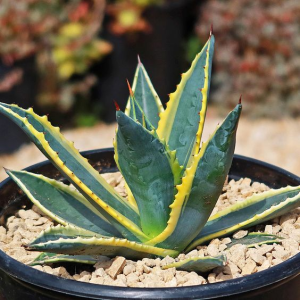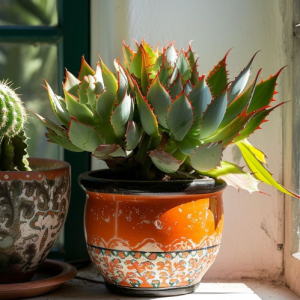- English
- Chinese
- French
- German
- Portuguese
- Spanish
- Russian
- Japanese
- Korean
- Arabic
- Irish
- Greek
- Turkish
- Italian
- Danish
- Romanian
- Indonesian
- Czech
- Afrikaans
- Swedish
- Polish
- Basque
- Catalan
- Esperanto
- Hindi
- Lao
- Albanian
- Amharic
- Armenian
- Azerbaijani
- Belarusian
- Bengali
- Bosnian
- Bulgarian
- Cebuano
- Chichewa
- Corsican
- Croatian
- Dutch
- Estonian
- Filipino
- Finnish
- Frisian
- Galician
- Georgian
- Gujarati
- Haitian
- Hausa
- Hawaiian
- Hebrew
- Hmong
- Hungarian
- Icelandic
- Igbo
- Javanese
- Kannada
- Kazakh
- Khmer
- Kurdish
- Kyrgyz
- Latin
- Latvian
- Lithuanian
- Luxembou..
- Macedonian
- Malagasy
- Malay
- Malayalam
- Maltese
- Marathi
- Mongolian
- Burmese
- Nepali
- Norwegian
- Pashto
- Persian
- Punjabi
- Serbian
- Sesotho
- Sinhala
- Slovak
- Slovenian
- Somali
- Samoan
- Scots Gaelic
- Shona
- Sindhi
- Sundanese
- Swahili
- Tajik
- Tamil
- Telugu
- Thai
- Ukrainian
- Urdu
- Uzbek
- Vietnamese
- Welsh
- Xhosa
- Yiddish
- Yoruba
- Zulu
- Kinyarwanda
- Tatar
- Oriya
- Turkmen
- Uyghur

Maori ki nga Amerikana, otira ko Mexico, te Tipu o Agave He tino nui puta noa i te hitori mo te maha o nga whakamahinga me te tauraki. I tua atu i te mea ko te whakauru tuatahi mo te hanga Tequila, ka kitea e te Agave te maha o nga waahanga mo te oranga o ia ra, te umanga, te rongoa, me te whakapono. Ko te whakamahinga o mua o te tipu o te Agave puta noa i te hitori ka korerohia i roto i tenei pepa me nga tauira o te whakauru ki nga waahanga o Amerika tawhito.

Tipu o Agave
Te kai me te inu: Rauemi
Ko te kai me te inu inu ko te whakamahinga tuatahi o te tipu agave. Ki nga pakiaka mano mano tau, ko te mea rongonui ko te whakaputanga o nga ngakau tipu a Agave ki te whakaputa inu.
Pul que
Kua roa te whakamahi a Agave i nga wa o mua, tuatahi i Mesoamerican Old Aztec Society. I peia e nga Aztecs te tipu o Agave i taua wa ka huri ki a Pluque, he inu. Kua roa te whakamahinga i roto i nga karakia karakia, nga mea patunga tapu, me te kai, ko Pulque he miraka ma-waipiro. Ko Pulque te tikanga o te whakawhitiwhiti korero hanahana tae atu ki te inu pāpori. Kei roto i nga waahanga tino nui o te hapori Aztec.
Tuhinga ka whai mai
I tua atu i te whakaputa waina, ka huri ano te wai agave ki roto i te tirikara agave, he mea tino pai te manaakitia i roto i nga kai o te ao mo te taupū o te glycemic iti. Ko te tirikara agave te whakaputa ma te whakamahi i tetahi tikanga tawhito me te taketake. Kohuatia me te rongoa, ka hangaia e te wai te wai matotoru mo te whakakapi i te honi, i te huka ranei hei reka paraoa.
Te tunu kai me nga kai tunu
Ko nga rau o te tipu o Agave i tino whakamahia i roto i te tunu kai me te kai kai i Amerika tawhito. Hei takai i te kai mo te haehae, te tunutunu ranei, ka tapahia e nga kaihokohoko nga rau agave ka wera i a raatau. Na roto i nga waahanga taiao i roto i nga rau, ko tenei tikanga tunu kaore noa e whakarato noa i te rihi me te reka motuhake engari ka ara ano hoki i ana mea pai.
Te maimoatanga me te whakaora i te rongoa
Ko nga tuhinga matū o te tipu o Agave i mahi i roto i nga rongoa tuku mai i nga wa onamata. E kiia ana te tipu o te Agave hei rongoa mo te rongoa mo te maha o nga mate i roto i te ahurea Amerikana.
Te mate anti-mate me te whakaora whakaora
He nui ki nga pūhui antibacterial, i whakamahia te wai o nga rau agave i mua ki te rongoa i nga mate me nga patunga kiri. Ko te tapahi i nga rau agave, te tango i te wai, te penupenu ranei i roto, me te tuku tika ki te tapahi ka taea te patu i nga iroriki, te whakaheke i te mumura, me te tere whakaora i te mate. Ka whakamahia hoki nga kounga antibacterial o Agave ki te tahu maimoatanga me nga mate kiri.
Tukuna nga take o te puku
I mua, kua whakamahia te wai agave ki te whai kiko o te kopu. Ko te muka me te whakapae i kitea i roto i te keri me te maamaa me te pupuhi. Ki te tiki hua rongoa, ka whakakotahi nga Amerika tawhito ki te wai avave ki te wai, ki tetahi atu inu ranei.
Whakaitihia te mamae me te riri.
Ko nga waahanga o Agave he tohu anti-inflammatory. Ko te Agave he maimoatanga noa mo te mamae mamae e pa ana ki te mumura tae atu ki te mamae niho me te rumati i waenga i nga kaiwhakaora tawhito. Ka pau pea nga hua Agave ma te waha, ma te maataki ranei hei awhina i te tinana kia kore e mamae, kia kore e mamae.
Nga kaupapa noho ora me nga mahi ahuwhenua
Ko Agave tetahi tipu nui i whakamahia ki Amerika tawhito mo te oranga me te ahuwhenua hei taapiri me te kai.
Muka me te kakano
Ko nga taonga o ia ra penei i nga taura, ko nga kakano me nga kete ka hangaia mai i nga muka tino kaha i kitea i roto i nga rau agave. Ka taea te toro atu o nga muka Agave ki te whānuitanga o nga hua o ia ra i muri i te whakamaroke me te tukatuka. Ko nga AZTecs he tino kakahu, he kakahu makariri mai i nga muka o agave, i pau ano hoki nga kiriata wera.
Nga taonga hanga me te hanga
I whakamahia nga rau Agave i roto i nga whenua ahuwhenua hei uhi mo te tuanui, hei hanga whare taketake ranei. Ko te kaha o nga rau Agave ka waiho hei taonga hanga tino pai, ina koa ki nga waahi he onge nga rakau me etahi atu rawa.
Ahi me te hinu
Te wahie mo te tipu o nga Agave ka ahu mai i ona rau maroke me nga puawai puawai, ka tahuna he wera me te maama. I whakamahia hoki a Agave i te mea he kaitirotiro ahi i nga wa onamata; Ko ona waahanga maroke ka taea te eke tere, ka noho ngawari te noho mo ia ra.
Tohu i roto i te haahi me te ahurea
I tua atu i te mea he tipu whai hua, he tino ahurea me te whakapono a Agave i nga hapori o Amerika. He mea nui te hiranga me te tu mo te ora, te taonga me te tapu.
Tuhinga o mua
Ka kitea te Agave i roto i te ao Aztec hei tohu mo te ora me te whakaputa uri. Ko nga rau matotoru o Agave me nga tauira tipu ka hopu i nga taonga me te kaha o Whaea Papa. I whakamahia i roto i nga whakanui me nga patunga tapu ki te inoi mo te hua hua pai me te oranga o te iwi a te tau e haere ake nei.
Te tipu tapu mo nga mahi whakapono
Ko te hononga o Agave me te pulque ka whakanuia hei tipu tapu. Ko te Pulque e nga tohunga me nga tangata whakapono i te wa o nga kawa karakia a Aztec kia whiwhi ai ratou i te whakamarumaru me te whakamarama o nga atua; he mea tuku ano ki nga atua i enei huihuinga.
Tuhinga o mua i nga mahi toi me nga mahi toi
Ko nga Amelika tawhito te mahi nui i nga agave i roto i te mahinga auaha. Ko tona ahua ka puta i roto i nga mahi whakairo, nga korakora, me nga peita, te tohu i te mana, te riri, te ao mure ore. Ko te pikitia o te agave i roto i enei waahanga o nga mahi toi kaore anake e whakaatu ana i tona hiranga i roto i te ao o ia ra engari ko te mea whanui ano hoki he tohu ahurea.
Ko te mahi auaha a Agave i tenei wa
Ka huri nga wa, ka tuku iho nga tono tikanga a agave i nga wa katoa, ka whanake auaha. Ko nga tikanga o naianei kaore i te pupuri noa i te agave i roto i nga kai me nga inu engari he maha nga tono hou.
Te Whakawhanake Biofuel
No na tata nei kua arohia e Agave nga rangahau hei puna hinu koiora tauwhiro. Ko te hurihanga roa o te tipu o Agave me te ahua o te matewai ka tino pai tana muka me te huka mo te whakahiato o te bioethanol. I tua atu i te kawe i nga taonga tuku iho agave hei puna o te kaha, ka tukuna e tenei tono he whakatika mo te take o te hiko o naianei.
Te whakatenatena o nga rauemi e whai kiko ana
Kei te whakamahia te muka Agave i roto i te hanga i nga taonga takai whakakino, i nga taputapu kai me etahi atu mea kaiao i te pikinga o te mohiotanga ki te taiao. Ko enei rauemi ehara i te mea ka mau i te roa o te agave engari ano hoki te koiora, na reira ka iti ake te paanga ki nga taiao.
Te whakamahi i te agave i te waahanga hauora
Ko etahi o nga waahanga o te ogave, kei roto i te oligofrutose kei roto, ka tautokohia e te hauora o te whekau, kua whakaatuhia e te maatauranga o te aoiao hei awhina mo te hauora o te tangata. Ko enei hua ka akiaki i te waahanga o nga taonga hauora me nga kai hauora hei whakamahi i nga agave me te whakauru ki te koiora pai.

Tipu o Agave
Mai i nga wa onamata, kua puta te tipu o Agave me te tipu whakatipu. Motuhake mai i tona hiranga i roto i te hanga kai me te inu, ka whakamahia nuitia i roto i nga mahi rongoa, i ia ra, i nga mahi ahuwhenua, i nga tikanga whakapono, me era atu wahanga. I tua atu i te whakapai ake i te kounga o te oranga mo nga Amelika o mua, ko enei tono tikanga o te agave i whakanui ake i te whakahihiri me nga rauemi e waatea ana mo te ao o naianei. Ka whakatewhatewhahia te kaha o Agave, ka noho nui tonu mo te whanaketanga toiwhi me te oranga pai i te wa e anga whakamua ana te aoiao me te hangarau.
Nga korero o mua
Nga mahi whakato o te safflowerNga Korero Panuku
Ko nga whakamahinga me nga tohu a Anthurium i roto i te ahurea...


